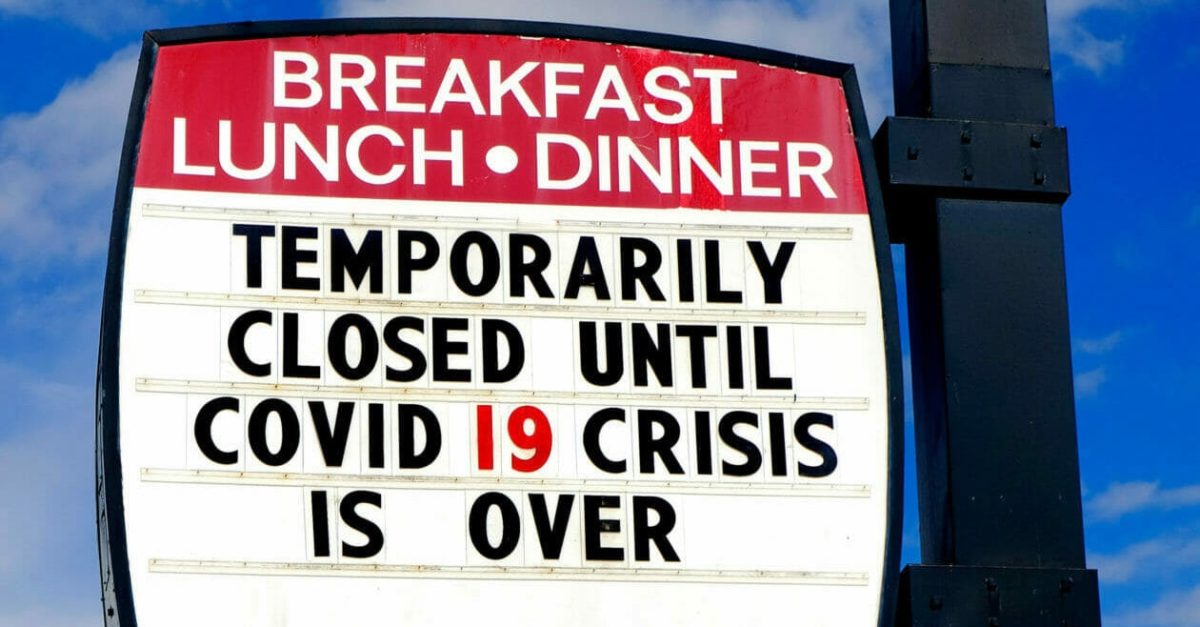During the 2008 financial crisis, the American government intervened after the collapse of Bear Stearns, convinced that allowing other large banks to fail posed a systemic risk that could plunge the economy into a depression. Under the stewardship of Treasury Secretary Henry Paulson and the Federal Reserve Chairman Ben Bernanke, Congress engineered a multi-billion dollar bailout using taxpayer dollars to rescue over-levered banks from the years of reckless speculation that had run roughshod on Wall Street. They came to the conclusion that certain banks were “too big to fail.”
It wasn’t easy to convince the public that bailing out irresponsible financial firms was prudent policy. The decision offended political sensibilities on both sides of the aisle—Republicans rejected the idea of government handouts and Democrats bristled at any initiatives that put corporations over people. Meanwhile, top executives at these insolvent corporations—arguably the most responsible for the malpractices that fostered the crisis—were continuing to collect seven-figure salaries and stock options even while credit markets seized and the banking system floundered.
It was unorthodox for the Treasury Department and the Fed to blur the lines between the public and private sector, but history has looked favorably upon the decisiveness and dexterity of their coordinated response. The principal figures involved continue to believe they had little choice—that doing nothing would have resulted in a far greater catastrophe.
As we speak, the restaurant business is in the midst of a mass extinction event. Research suggests that the industry will lose $240 billion in 2020 alone. Thousands of restaurants have already succumbed to the economic effects of the pandemic. Before the Coronavirus hit, the industry was already facing debilitating headwinds—shrinking profits margins, rising labor costs and skyrocketing rents. It’s been estimated that as many as eighty-five percent of independent restaurants may close as a result of the pandemic.
The Trump Administration, for its part, has been agnostic toward the plight of the service industry, prioritizing other industrial sectors like airlines, agriculture and energy. A bipartisan bill called the RESTAURANTS Act—cosponsored by Oregon Representative Richard Blumenauer and Mississippi Senator Roger Wicker—was introduced almost two months ago yet remains submerged in procedural pork fat.
In the meantime, mandated closures continue to ravage independent restaurants that lack access to capital and have shorter runways to ride out the crisis. Some owners have found creative ways to pivot. Others are stuck in limbo, leaning on carry-out, delivery and outdoor dining to stem the tide. Municipal governments, saddled with their own budget shortfalls, offer little in the way of support. Without more clarity from federal leaders, many restaurants will have no choice but to permanently close. The casualties are already piling up.
Restaurants employ over 13 million people and the industry contributes over $800 billion annually to the American economy. Yet somehow legislators don’t approach this crisis with the same sense of urgency as they did when banks were underwater. It’s difficult to understand why. Restaurants didn’t bring this upon themselves through reckless business practices the way investment banks did. One would assume that political leaders would treat the restaurant industry more compassionately than they did banks, but the reverse seems to be true.

Growth in the service sector has historically been a leading indicator of economic health, and the industry has contributed significantly to job creation since The Great Recession. While the country continues to lament over the demise of American manufacturing and the waning fossil fuel industry, today’s economy relies much more heavily on service and leisure for growth. The hemorrhaging of hospitality jobs may be even more corrosive to the unemployment rate because the service industry is one of the few areas that’s grown steadily since the turn of the century.
We tend to think about the restaurant industry as monolithic, but it really doesn’t behave that way. Independent restaurants face an entirely different set of challenges than multi-national chains do. The COVID-19 crisis is magnifying those differences. Independently-owned operations tend to be more insular, whereas big chains answer to shareholders that prioritize quarterly profits and stock price. This makes it difficult for restaurants of all shapes and sizes to find common ground when solidarity is needed to ensure the industry’s interests are properly represented.
Unlike Wall Sreet banks and Silicon Valley tech companies, the restaurant industry is only narrowly represented by political lobbyists. The National Restaurant Association has clout in Washington—it spent almost $3 million lobbying Congress in 2019 alone—but its messaging is often muddled by its diverse constituency. The NRA represents over 500,000 restaurants, each facing its own unique hurdles in overcoming the pandemic.
Multinational corporations share in the devastation, but they have no incentive to exert energy to support independent restaurants. On the contrary, the demise of local competitors assures them an even bigger slice of the post-pandemic pie. The Trump Administration has consistently pandered to large corporations in shaping government stimulus. CEOs of chain restaurants like Subway, McDonald’s, Yum Brands, Papa John’s and Panera have participated in the Administration’s “Great American Economic Revival Industry Groups” and White House roundtables. Independent restaurateurs have been largely excluded from those meetings, as have women and people of color.
The recently formed Independent Restaurant Coalition—a tribunal of food personalities including Andrew Zimmern, Tom Colicchio, Ashley Christensen, Nancy Silverton, Marcus Samuelsson and José Andrés—has worked to raise awareness about the plight independent restaurants. Though these chefs represent restaurant groups of varying sizes, they share the same frustrations associated with the need to retrofit their businesses to adapt to the challenges of the pandemic. A recent advertisement produced by the IRC enlists the inimitable voice of Morgan Freeman to call on Congress to pass the RESTAURANTS Act.
If we want to better understand how the American government has forsaken the restaurant industry, we need to delve deeper under the surface. By nature, restaurants have always been transactional. Hospitality ethos traditionally centers self-sacrifice in the pursuit of satisfying the guest. This unprecedented public health crisis, however, has shown how that philosophy is self-sabotaging. The notion that “restaurants will always be there for you” cannot be unconditional. The widespread absence of restaurants has profoundly affected the way we socialize during the pandemic, and yet very little is expected of the public in terms of sharing the responsibility for the industry’s revitalization.
With the ascent of foodie subculture, restaurants are objectified. They’re expected to provide nourishment but also arousal. The smartphone era has compounded the effect, where archiving meals and fetishizing food have become elemental to the experience. Foodies convince themselves that the bonds they develop with beloved restaurants run deep, but they’re actually quite superficial. Working in fine dining restaurants feels a lot like dating someone who’s only physically attracted to you. As soon as things get complicated—like a global pandemic—they stop answering their phone.
There’s also a perceived impermanence to restaurants, despite the fact that so many of them have become pillars of their communities. If a restaurant closes, no big deal, another one will open in its place. For some reason, restaurants are seen as transient and disposable in a way that other businesses aren’t. The airline industry has received billions in government bailouts this year despite the fact that it employs only 750,000 people, a fraction of the restaurant workforce. Airlines and restaurants both account for roughly 5% of the annual GDP in the U.S. and, so far, independent restaurants have received no federal support aside from conditional payroll protection loans. The prevailing attitude appears to be: People can eat without restaurants, but they can’t fly without airlines.
But there is a spiritual element behind what restaurants provide that makes these comparisons unfair. They’re sanctuaries for the community. Part of their allure has always been the basic human need to gather and be fed in a safe space. As the pandemic spins out of control, the restaurant industry cannot be expected to restore public trust on its own. The likelihood of restaurants surviving this pandemic without the coordinated efforts of public health agencies is next to none.
In the aftermath of the financial crisis, we never learned what might have happened if Congress had failed to act to bail out big banks. The markets gradually stabilized, the economy grew steadily throughout most of the Obama presidency, and the American taxpayer more than recouped its investment. Some might argue that it also reinforced the status quo in corporate America and contributed to the widening wealth gap.
As with ailing banks, there is an inherent systemic risk to allowing the restaurant industry to fail. Culinary experiences have become engines for tourism, creating a halo effect for hotels, music venues, clubs, museums, theaters and retail shops. The restaurant supply chain is also a complex interconnected tapestry of merchants—fishmongers, butchers, wine importers, liquor distributors, local farmers, florists, exterminators, and even commercial landlords.
Policymakers may be underestimating the magnitude of the downstream devastation if government does nothing to slow the rate of restaurant closures. It’s dangerous to assume that the magnitude of the crisis in the service industry is less threatening to the American economy than the banking crisis was in 2008. As well-loved restaurants disappear around the country everyday, it appears we may have to learn this lesson the hard way.




